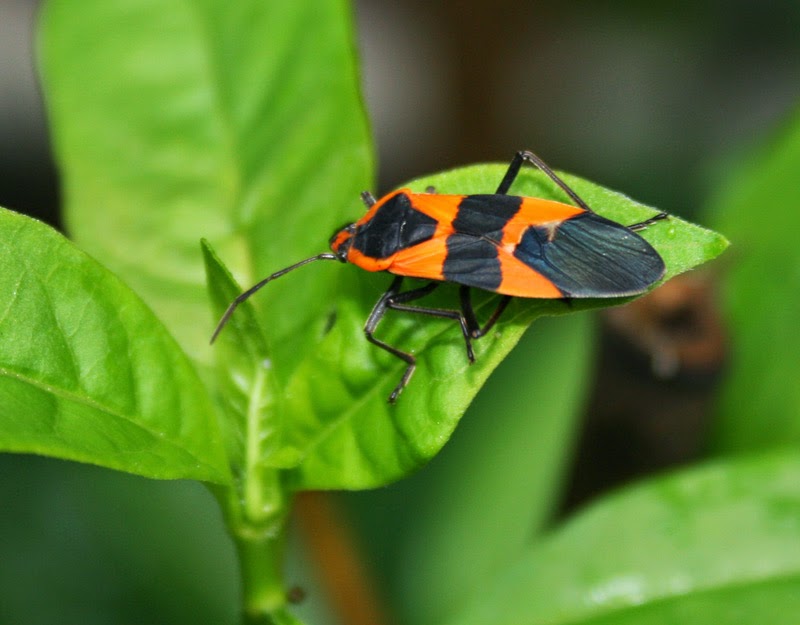Behold – the milkweed bug! If you see and orange and black bug in Florida… it may be this puppy:
 |
| Photo by Rachel Goodman. I know, she’s better at it than I am. Dang it. |
I’ve been growing “butterfly weed” (also known as “tropical milkweed,” or, most properly, as Asclepias curassavica) in my yard for a few years after finding one by the side of the road and transplanting it. I’m always amazed by how many insects flock to this toxic plant.
The thing I find most interesting is the common color scheme in the various predators and prey that pay this perennial a visit. Orange and black appears over and over again. The aphids that congregate on butterfly weed are invariably bright orange. The monarchs that feat on this plant are orange and black. The milkweed leaf beetle: orange and black. The milkweed assassin bug: yep, orange and black.
This plant is decorated for Halloween all year long.
As for the insect in the photo, that’s the “milkweed bug,” also known as Oncopeltus fasciatus. It’s not a directly useful garden insect, since it mostly just eats milkweed, but it does play the role of population control by keeping milkweed plants from taking over the world.
Since my primary focus is on growing food, I don’t spend much time growing ornamental plants; however, growing a mix of non-edibles with your edible plants creates a much wider ecosystem. What’s that mean? It means free pest control, butterflies, pollinators and lots of moments where you get to say “Hey… look at that cool bug!”
That’s got value right there. I mean, you can’t spend all your time eating, right? Might as well take pictures of a milkweed bug!


6 comments
…since it mostly just eats milkweed…
Actually it eats the seed. If you want to grow more plants from seed, or you want to provide seeds to anyone who is trying to expand milkweed populations, be aware these bugs destroy seed pods.
Yes – good point to make. Apparently you can also feed them other small grains if there isn't milkweed available.
Interesting. I've been seeing a lot of orange and black here, too, in the garden. You don't do so bad on the photography side, David. Rachel did do a great job of "catching" the bug well, though.
Thank you.
Visit Save Our Monarchs (www.saveourmonarchs.org) for free milkweed seeds. You can also donate to our cause if you wish!
I just did. Thanks for the link.
Comments are closed.